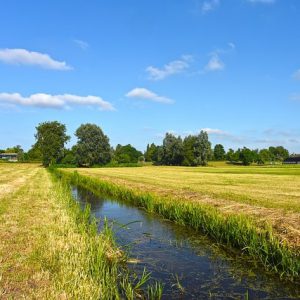
Last fall, both Indiana University and Purdue University received $1.6 million each in federal grants to study Per- and polyfluoroalkyl substances (PFAS) in rural water supplies.
While there is evidence of how PFAS end up in some water supplies, research into PFAS in rural areas such as private drinking water wells is less available.
While the overall theme of these grants is similar, the universities will be working on different subtopics in the area of PFAS pollution. Purdue agronomy professor Linda Lee will studying whether treated wastewater used as fertilizer on farms is significantly contributing to PFAS pollution in water. This grant comes less than a year after Lee secured a $900,000 grant to find ways to reduce the level of PFAS in drinking water by capturing or remediating them before they leave wastewater treatment plants. (Purdue Press Release)
At IU, principal investigator Jackie MacDonald Gibson and her team will be creating a model to predict PFAS levels in private wells as well as agricultural soils, wastewater and runoff water across the nation. (IU Press Release)
Background: PFAS are a family of man-made chemicals in use since the 1940s which are found in a wide range of products from water resistance coatings to furniture or food packaging. Research has linked some PFAS in the body to increased levels of cholesterol, low infant birth weights, thyroid and immune system problems, and cancer. More on PFAS.
